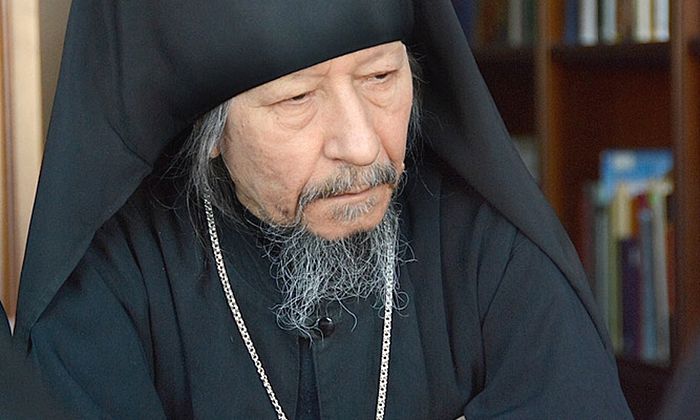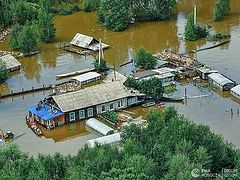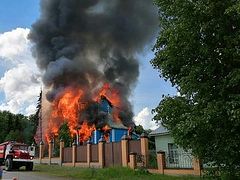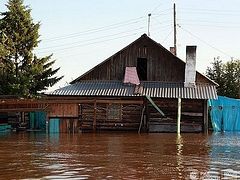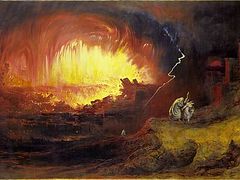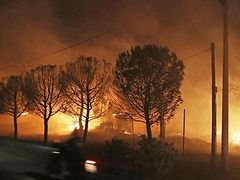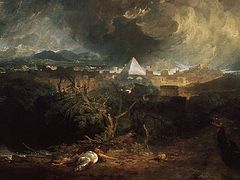On the feast day of St. Elias, who fiercely rebuked the Israelites for their sins, Pravoslavie.ru spoke with two respected priests about what was happening in Russia—hundreds of acres of Siberian forest were burning. How long wilt ye halt on both feet? (3 Kings 18:21) the prophet Elias asked his contemporaries. How should we relate, in the light of Holy Scripture, to these and other disasters that strike us?
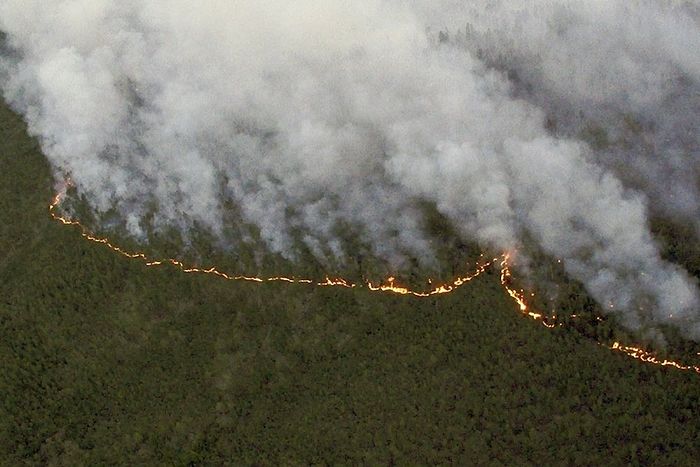 Forest fires in Siberia. Photo: Russian forest service.
Forest fires in Siberia. Photo: Russian forest service.
Out job is to turn to virtue.
Archimandrite Job (Gumerov), Sretensky Monastery, Moscow.
—God not only acts through history, He also governs nature, which He created. This thought runs through all of Holy Scripture. Psalm 103 is a magnificent hymn to God, Who created all in His wisdom and continues to care not only for man but also for all His other creations: He watereth the mountains from His chambers; the earth shall be satisfied with the fruit of Thy works. He causeth the grass to grow for the cattle, and green herb for the service of men, To bring forth bread out of the earth (Ps. 103:14–16). People of biblical times always perceived rain as a manifestation of divine mercy: And I will settle them round about my mountain; and I will give you the rain, the rain of blessing (Ezek. 34:26). The Psalmist hymns the mercy of God, for God sent rain even during the Jews’ time of wandering in the desert: A rain freely given shalt Thou ordain, O God, for Thine inheritance; yea, it became weak, but Thou shalt restore it (Ps. 67:10).
Also through the prophet Moses the Lord showed the chosen people that their prosperity depends upon their fidelity to God and from fulfilling the laws that He had given to man. If they depart from fulfilling the commandments and worship idols, then: the Lord be angry with you, and restrain the heaven; and there shall not be rain, and the earth shall not yield its fruit, and ye shall perish quickly from off the good land, which the Lord has given you (Deut. 11:17).
And on the contrary, the Lord God sends fruit-bearing rains for people’s pious life: If ye will walk in my ordinances, and keep my commandments, and do them, then will I give you the rain in its season, and the land shall produce its fruits, and the trees of the field shall yield their fruit (Deut. 11:17).
Considering the vital significance of moisture for the earth, the prophet Hosea says of the Lord: He will come to us as the early and latter rain to the earth (Hos. 6:4). After a dry summer that lasts from mid-May to late October, in Palestine begins a period of rain. The most beneficial rain for crops were the early (October to November) and late (February to early March) rains, about which the writers of sacred scripture make mention (Jer. 5:24; Js. 5:7). Especially needed for crops were the late rains, which fall in spring. The harvest depended on it. Thanks to these rains the reservoirs fill up, and the fields can be watered from them during the dry summer months.
For biblical man, raised on the divinely revealed sacred books, the thought that weather exists independently of God would have seemed absurd. In chapter 14 of the book of the prophet Jeremiah is the word of the Lord to the prophet about drought. The prophet says to the Lord, Can the heavens give showers [by themselves]? art not thou the Lord our God, whom we have looked for? for thou hast made all these things (Jer. 14:22). This very important thought about Divine Providence in nature is developed also in the New Testament. God testifies of Himself, that he did good, and gave us rain from heaven, and fruitful seasons, filling our hearts with food and gladness (Acts. 14:17).
The disasters that have stricken our country not only point to society’s painful wounds but are also testimony to its generally disastrous spiritual and moral state. Only a small part of the population leads a spiritual life and strives to fulfill God’s commandments. A large part of the people suffers from the illness of unbelief and strives to satisfy their passions. From this are born all painful wounds: Millions of women kill their own children through abortions; massive fornication and spreading greed are eating away at the moral values in society like acid. There are many other illnesses. “Let no one labor”, says St. Basil the Great, “to find the cause of bitter manifestations—why are there droughts, why rain, why thunderbolts, why hail? It is for us, who have unrepentant hearts and do not turn [to God] except when we are [stricken].” St. John Chrysostom also talks about the need to correct our lives and place all our hope in God: “To leave the time of ending disasters to God, while we only pray, live piously; because our work is to turn to virtue, while the cessation of disasters is God’s work.” In another work this great preacher warns: “God has the power to stop all disasters, but until He sees a complete conversion, He will not stop the sorrows.”
We need to raise our morality…
Hieroschemamonk Valentin (Gurevich), father confessor of the Moscow Donskoy Monastery:
—Basically, today is not a time of happiness and proliferation, but more resembling the time of Prophet Elias in Israel—a year of threats, warnings, and cataclysms that have crashed down upon the country and its people for serious spiritual and moral falls.
Recall the fires of recent years—they all eloquently testify to the values of a society of consumerism and entertainment. The young, energetic part of society, instead of “fervent repentance”—which St. Seraphim of Vyritsa said would save Russia—is dancing and misbehaving in nightclubs, in which there are also fires that take young lives… But this dance does not stop… And instead of multiplying new generations of pious, honest workers and large families, children are conceived in drunken wantonness to fill the children’s homes, which supply society with future residents of prisons and psychiatric hospitals. That is of course if they let the children be born. The country is awash with the blood of unborn, aborted infants…
After all that happened in the country in the twentieth century, do we really need yet another thunderbolt to make folks cross themselves? And then change their lives…
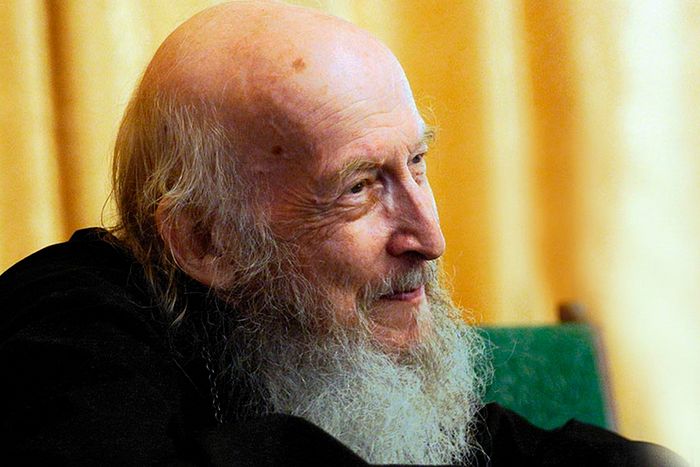 Hieroschemamonk Valentin (Gurevich)
Hieroschemamonk Valentin (Gurevich)
I remember a story that happened in Russia at the beginning of the twentieth century, when the country was in the wild throes of social disorder:
Some revolutionary youths, in a mad apogee of its rebelliousness, locked the faithful in a church on Pascha and set it on fire as the mob hooted on. Only one boy was saved—he managed to climb onto the bell tower. (It is doubtful that he rang the alarm; and anyway how many alarm bells still go unheard in our country?) The boy later, after some time had passed, left for Mt. Athos, were he told the ascetics of the Russian St. Panteleimon Monastery there what was revealed to him, so that they would pass this revelation on to Russia. Through the flame on that Pascal night he saw how the apostles were receiving the souls of those martyrs who were being burned alive. The apostle Peter turned to the boy who had been miraculously saved, and said:
“Russia will be under a penance that will last seventy years.”
A penance is given for people’s correction. But have the people corrected themselves?..
One component of that penance was the Second World War. In Stalingrad, once called Tsaritsyn, that epicenter of unending fire unto total destruction and death, there were, by the way, conversions to God. Right there, in that city virtually wiped off the face of the earth, Ivan Pavlov—the future elder of all Russia Archimandrite Kirill—found a Gospel… For the sake of the podvig of faith of those such as him, the Lord still has mercy and longsuffering… “Morality needs to be raised in the people”, and that is what Fr. Kirill dedicated his priestly service to. “And only then can we talk about a rebirth of Russia,” he would say.
I remember how right after the fall of the atheistic regime the famous bard, Anatoly Kashka, sang:
Lighting the candle of rebirth,
Adorning churches with cupolas
O my dear Russia,
Adorn your faith with works.
And now with sadness we can say, “Where are the works? Nothing but cupolas”… Pillars of faith like Fr. John (Krestiankin), Fr. Nicholai (Guryanov), Fr. Kirill (Pavlov) are departing. Do we need new persecutions, cataclysms and wars in order for the people to find the strength in themselves to repent and heed these elders, so that the Lord would raise up new pastors like them, and preserve the people from false guides—to which some still bow down even now?
Saddest of all is that the Church’s brief prosperity after a period of persecution, when instead of the repressions to which it had become accustomed it swam in all-around respect and glory with no repression, this prosperity was not put to maximum use to change the moral climate in society; but to the contrary, with the exception of some true pastors, was followed by a growing laxity in the clergy itself.
We know from history that times of persecution have always served to better the Church. And times of peace and honor have often caused people belonging to the Church, due to human weakness, to become lax, to lose their vigilance and fall into various human failings, as the saying goes: “A fish looks where it’s deeper, and man looks where it’s better.” And often pastors and monastics in such times begin to concern themselves not with healing the people’s infirmities but with their own well being and comfort. And these are the very times described in the biblical passage: So Jacob ate and was filled, and the beloved one kicked; he grew fat, he became thick and broad: then he forsook the God that made him, and departed from God his Saviour (Deut. 32:15)…
And as long the worship of idols described above with its service to the sin forced upon it by godlessness, including temptations from part of the clergy, go on, our country, without understanding why, will drown in its problems: divorce, abortions, explosions, and cataclysms like the current enormous Siberian fire… Now in our country the words of Psalm 79 are literally being fulfilled: our vineyard is burned with fire and is dug up; at the rebuke of Thy face they shall perish (Ps. 79:17). It is written: For whom the Lord loveth he chasteneth, and scourgeth every son whom he receiveth (Heb. 12:6)…
But what other thunderbolts await us?

